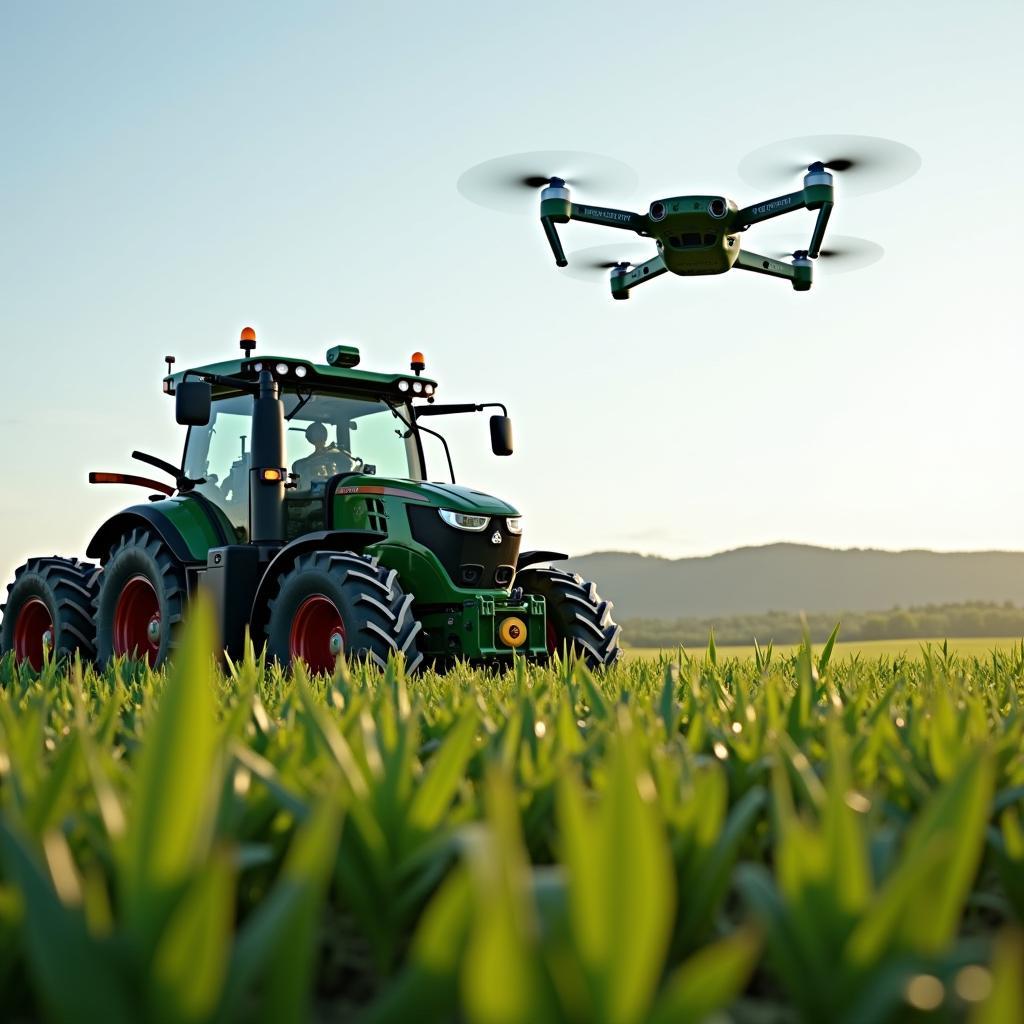The impact of automation on agriculture is an increasingly common topic in IELTS Writing Task 2, appearing in various forms over the past few years. As impact of automation on employment opportunities in developing countries continues to be a significant global concern, understanding how to address this topic effectively is crucial for IELTS candidates.

Topic Analysis
Some people believe that the increasing use of automation in agriculture will have more negative than positive effects on farming communities and food production. To what extent do you agree or disagree?
This question requires candidates to evaluate the impact of agricultural automation on both farming communities and food production. The task involves discussing social and economic implications while forming a clear position.
Band 8 Sample Essay
The widespread adoption of automation in agriculture has sparked debate about its implications for farming communities and food production. While some argue that these technological advances may have detrimental effects, I firmly believe that the benefits substantially outweigh the drawbacks.
The primary advantage of agricultural automation is its potential to dramatically increase food production efficiency. Advanced machinery and AI-driven systems can operate 24/7, significantly reducing crop cultivation and harvesting time while maintaining consistent quality. For instance, automated irrigation systems can optimize water usage based on real-time soil conditions, leading to higher crop yields and reduced resource wastage.
How automation is affecting job markets in developing countries has shown that while traditional farming jobs may decrease, new opportunities emerge in technical and supervisory roles. Farmers can transition from manual laborers to skilled operators managing sophisticated equipment, ultimately improving their economic status and working conditions. This transformation also attracts younger generations to agriculture, ensuring the sector’s sustainability.
Moreover, automation enhances food security by enabling precise farming practices. Automated systems can detect crop diseases earlier, monitor growth conditions more accurately, and implement immediate corrective measures. This results in more reliable harvests and better quality produce, benefiting both producers and consumers.
However, the initial implementation of automation requires substantial investment, which may temporarily strain farming communities. Nevertheless, the long-term economic benefits and improved working conditions ultimately contribute to these communities’ prosperity and development.
In conclusion, while the transition to automated agriculture presents some challenges, its positive impact on both farming communities and food production is undeniable. The key lies in managing this transition effectively to ensure inclusive growth and sustainable development.
Band 7 Sample Essay
The increasing implementation of automation in agriculture has generated considerable discussion about its effects on farming communities and food production. In my opinion, while there are some challenges, automation generally brings more benefits than drawbacks.
automation’s effect on labor in developing countries demonstrates that automated farming systems can significantly improve productivity. Machines can work continuously and precisely, leading to increased crop yields and more efficient resource utilization. For example, automated harvesters can collect crops much faster than manual labor, reducing waste and improving timing.
Furthermore, automation helps address labor shortages in agricultural regions. Many young people are leaving farming communities for urban areas, and automated systems can fill this gap. Although some traditional farming jobs may be lost, new positions in operating and maintaining agricultural machinery create alternative employment opportunities.
However, there are valid concerns about the initial cost of automation and its impact on small-scale farmers. Not all farming communities can afford expensive automated equipment, which could create inequality within the agricultural sector. Additionally, some traditional farming knowledge might be lost as automated systems take over.
Despite these challenges, I believe the positive effects of automation outweigh the negatives. The improved efficiency and productivity contribute to better food security, while the modernization of farming practices can make agriculture more attractive to younger generations.
Band 6 Sample Essay
In modern agriculture, machines are doing more work than before. Some people think this is bad for farmers and food production, but I partly agree with this view.
First, automation helps farmers produce more food. Machines can work for many hours and don’t get tired like humans. They can plant and harvest crops faster, which means more food for everyone. Also, machines are very accurate and waste less resources.
However, there are some problems. Many farmers might lose their jobs because machines do their work. This is especially difficult for poor farmers who cannot buy expensive machines. Also, some farmers don’t know how to use new technology.
But automation also creates new jobs. Farmers can learn to operate machines and earn better money. The impact of automation on the labor market shows that while some jobs disappear, new ones are created.
In conclusion, I think automation has both good and bad effects on farming. The solution is to help farmers learn new skills and make sure everyone can benefit from new technology.
Key Vocabulary
- Automation (n) /ˌɔːtəˈmeɪʃən/ – the use of machines and computers to do work without human control
- Agricultural (adj) /ˌæɡrɪˈkʌltʃərəl/ – related to farming
- Implementation (n) /ˌɪmplɪmenˈteɪʃən/ – the process of putting a plan into action
- Sustainable (adj) /səˈsteɪnəbəl/ – able to continue over a long period
- Transition (n) /trænˈzɪʃən/ – the process of changing from one state to another
This topic may appear in future tests in various forms, such as discussing the environmental impact of agricultural automation or comparing traditional versus automated farming methods. Practice writing essays on these related topics to improve your skills.